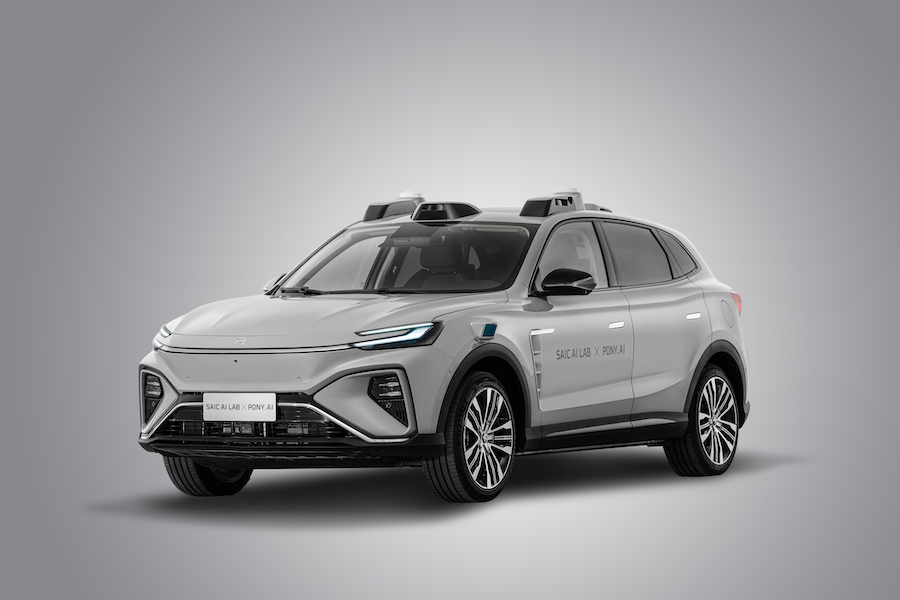
Toyota-backed self-driving vehicle startup Pony.ai is partnering with a division of SAIC Motor, China’s largest automaker, to develop a fully driverless electric robotaxi, the companies announced September 27.
Pony.ai is collaborating with SAIC (Shanghai Automotive Industry Corporation) AI Lab to build a fleet of electric vehicles capable of level 4 autonomy—that is, the ability to act without any human intervention in the vast majority of situations.
“SAIC is a world-class automotive company, and Pony.ai is a leader in autonomous driving technology,” James Peng, Pony.ai co-founder and CEO, said in a statement. “Together we will break through tech boundaries and accelerate the development of driverless technology and promote and advance the application of driverless technology.”
To launch the new partnership, the companies debuted a concept car based on the SAIC Marvel R model. The vehicle is equipped with the latest generation of Pony.ai technology, which utilizes 17 integrated automotive-grade sensors to create a 360-degree visual range covering 200 meters, eliminating blind spots around the vehicle. Its streamlined, compact design also features a new generation of intelligent cockpit with a foldable steering wheel.
“Pony.ai is a global leader in autonomous driving. SAIC AI Lab has mature technical strengths in driverless operation, vehicle development, and intelligent cockpit,” Dang Xiang, general manager of SAIC AI Lab, said in a statement. “Cooperation between the two companies will accelerate commercialization progress, upgrade mobility services, and advance the establishment of intelligent urban transportation.”
Founded in 2016, Pony.ai has recently seen both advances and reversals. For example, in April, Pony.ai became the first autonomous driving company to obtain a taxi license in China, winning a permit to operate 100 autonomous vehicles as traditional taxis in Nansha, Guangzhou, and that month it also became one of the first companies to win permits to provide driverless robo-taxi service to the public on open roads in Beijing. However, in May, the California Department of Motor Vehicles revoked its permit to test its autonomous vehicle technology with a safety driver in the state for failing to monitor the driving records of the safety drivers on its testing permit, TechCrunch first reported.

